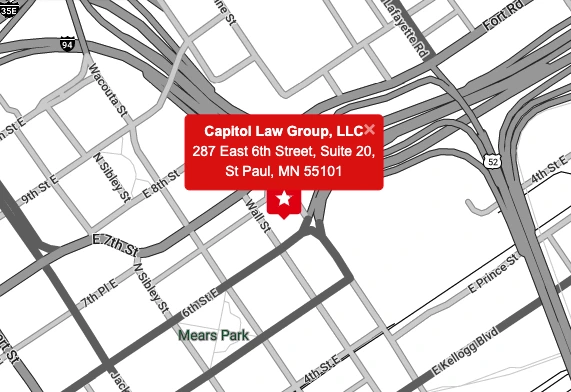Can a St. Paul Criminal Defense Attorney Obtain Post-Conviction Relief?

All felony convictions carry significant collateral consequences. At a minimum, convicted felons are usually permanently ineligible for many professional licenses and many government financial benefits, including student loans and welfare benefits. Convictions also reduce people to the rank of second-class citizens. These individuals usually cannot vote, serve on a jury, or hold public office. Moreover, even for lawful permanent residents, felony convictions could mean deportation.
Furthermore, probation conditions are usually quite restrictive, particularly in felonies. Conditions usually include reporting once a month, attending self-improvement classes, and performing community service. Additionally, the defendant remains under the thumb of court supervision, which is typically four years in most felony cases.
With the usual exception of immigration consequences, Ramsey County judges are normally not required to inform defendants of these consequences. And, the only way to reduce or eliminate them is for a St. Paul criminal defense attorney to obtain post-conviction relief, as outlined below.
Criminal Appeals
Appeal is the rarest form of post-conviction relief. Pleas resolve as many as 97 percent of felony cases. And, pleas almost always include appeals waivers. Unless there is clear evidence of egregious misconduct (e.g. the defendant’s St. Paul criminal defense attorney threatened to harm the defendant’s family unless she pleaded guilty), it is pretty much impossible to appeal a plea bargain agreement.
Trial verdicts are not much easier to appeal. Generally, the defendant must show there was a critical mistake and that mistake affected the trial’s outcome. Some common arguments include:
- Ineffective Assistance of Counsel: This test is not outcome-determinative. If the lawyer lost the case, the lawyer was not necessarily ineffective. If the attorney was unlicensed or under the influence of alcohol or drugs during the trial, the attorney might have been legally incompetent.
- Prosecutorial Misconduct: Before trial begins, prosecutors might withhold exculpatory evidence or interfere with the discovery process. During trial, prosecutors might make inappropriate remarks to the jury or remove jurors due to the color of their skin.
- Judicial Error: Incorrect jury instructions, if the error affected the trial’s outcome, might be a sufficient judicial error. With regard to decisions, such as admitting or excluding evidence, judges have a great deal of discretion, so appeals judges will usually uphold even questionable calls.
- Jury Misconduct: It’s very easy, and very tempting, for jurors to Google defendants, incidents, or St. Paul criminal defense attorneys, and use the information they find during deliberations. That’s illegal, because jurors must decide cases based solely on the evidence presented at trial.
Courts have consistently held that the defendant is entitled to a fair trial, but not a perfect trial. So, the burden of proof is quite high.
Early Discharge from Probation and St. Paul Criminal Defense Attorneys
It might be nearly impossible to overturn a criminal conviction on appeal, but it is usually rather easy to terminate probation early. Early discharge does more than end the aforementioned court supervision. Early discharge also sets the stage for possible expunction, as outlined below.
According to Section 609.37 of the Minnesota Statutes, most defendants are eligible for early discharge, as long as they have no prior felonies. As a practical matter, however, the defendant should have completed at least half the term, paid all fines, and attended all required classes.
If the probation officer approves the request and the defendant meets these informal requirements, many Ramsey County judges sign early termination orders without hearings. If the probation officer does not give a thumbs up or thumbs down, a St. Paul criminal defense attorney must generally present evidence that early discharge would be in everyone’s best interests. If the probation officer disapproves of the request, the early discharge hearing is difficult to win.
Expungement in Ramsey County
Record expungement in Minnesota is more like record sealing in other states. The bad news is that expungement relief is limited in Minnesota. The good news is that it is easier for a St. Paul criminal defense attorney to expunge a record. There are two types of expungement in the Gopher State:
- Statutory: These proceedings seal all records, including BAC records. These expungements are limited to the ones expressly provided in Minnesota law.
- Inherent Authority: A court can seal its own records if the judge feels that such action is in everyone’s best interests. Inherent authority expungements usually apply to police and other law enforcement records as well.
Certain offenses, such as most sex crimes, are not expugnable. Post-conviction relief may be available in sex offense cases, but the rules are different.
Contact a Tenacious Lawyer
An attorney can keep fighting for you even after the judge’s gavel falls. For a free consultation with an experienced St. Paul criminal defense attorney, contact Capitol City Law Group, LLC. Go online now, call us at 651-705-8580, or stop by 287 6th St E, Suite 20, St Paul, MN 55101.




